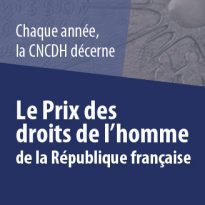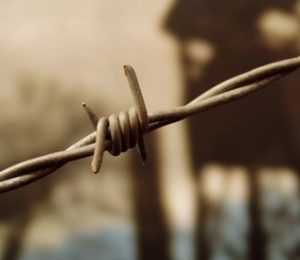Application Deadline: September 9 2013
The French Republic’s 2013 “Liberty, Equality, Fraternity” Human Rights Prize, presented by the Prime Minister of the French Government, is now open for applications.
The French Republic Human Rights Prize was created in 1988, is awarded for individual or collective action on the ground, irrespective of nationality or borders, undertaken in France or abroad, with respect to one of two themes.
1 – Non-Governmental Organizations (NGOs), regardless of nationality and borders, should present en effort made in the field or an implemented project, in France or abroad, on one of the two themes for 2013:
Theme 1: Assisting and handling of internally displaced persons (IDPs)
Unlike refugees, internally displaced persons have not crossed an international border to seek asylum in another country, and have remained in their own country. The Office of the United Nations High Commissioner for Refugees estimates the number of IDPs as close to 30 million. The causes of these displacements, which often affect very poor people, can be of political, economic or environmental nature.
There are thus millions of homeless civilians forced into displacement by armed conflict or internal unrest, inter-community violence, forced evictions, natural and ecological disasters, and also by the social and ecological consequences of certain major development projects and industrial decisions, which raises the question of the legal and criminal responsibility of businesses. Where people flee for similar reasons to those of refugees – armed conflict, generalized violence, human rights violations – IDPs remain legally under the protection of their own government, which is sometimes itself the cause of their displacement. Internally displaced persons conserve all their rights, including that to protection under international human rights law and the principles of international humanitarian law; but during their forced displacement, individuals are often driven from their home and deprived of security, shelter, food, the means to subsist, and the support of their community.
Among IDPs, women and young girls are an especially vulnerable group requiring particular support and protection. They are victims of specific forms of violence ranging from discrimination to physical and sexual violence, which is sometimes used as a weapon intentionally targeted at certain communities and ethnic groups, aimed at terrorising and displacing them. In many countries, national NGOs, peasant organizations and local women’s organizations, which are often on the front line for health, shelter and schooling issues, support internally displaced persons by offering them social, humanitarian and sometimes legal assistance. The French Republic’s Human Rights Prize thus aims to recognize and welcome the leading role played by civil society in supporting and assisting these victims.
Theme 2: Protection of human rights in places of detention
The United Nations has adopted a set of legal instruments in the framework of protecting the rights of persons deprived of their freedom, ranging from a general framework through the International Bill of Human Rights to more specific texts linked to the treatment of detained persons. Nonetheless, the real situation of detained persons in France, Europe and worldwide is often the subject of damning observations. It concerns administrative and judicial detention as well as confinement in public or private places of persons suffering from mental disorders or pathologies. The problem of prison overcrowding, abusive isolation and restraint practices, ill treatment inflicted on prisoners and mentally ill persons, and the layout of detention centres themselves can undermine the dignity of individuals and affect their physical and mental integrity. In this respect, the issue of female prisoners requires particular attention.
Detention conditions – where they do not respect the individual right to dignity and privacy – as well as the issue of pregnant women in prison and psychiatric hospitals, the breakdown of family ties linked to detention, and the ill-treatment and specific violence women can suffer make them a particularly vulnerable group. The detention conditions and coercive practices exercised against detained persons can sometimes be assimilated with cruel, inhumane and degrading treatment and as such considered contrary to Article 5 of the Universal Declaration of Human Rights. National organizations have been created around the world to publicize the situation of detained persons whose rights are flouted.
The Prize could reward this necessary informative work, as well as any effort seeking to promote or defend the rights of persons in detention centres, such as actions to mobilize public opinion or to assist detained persons in the framework of – or alongside – legal proceedings.
2 – Five laureates will share the overall prize of €70,000 allotted by the Prime Minister. A “special mention” will be conferred on the five runners-up. Applications must comply with the Prize regulations. The prize regulations are available upon request, and can also be found on-line at www.cncdh.fr
3 – The application must be written in French and include:
a) a letter of application presented and signed by the president or legal manager of the NGO concerned; b) a dossier presenting the goal and description of the operation or project submitted, in detail. It must include a precise budget (with an equivalent sum shown preferably in euros); c) a presentation of the NGO concerned (statutes, operations, etc.); d) the postal address and bank details of the NGO.
Candidates must send their complete application without fail, before the final date of submission on 9 September 2013, to the Secretariat-General de la Commission (35, rue Saint-Dominique – 75007 Paris – France). or by email to: [email protected] AND [email protected]
4 – Following the announcement of the results by the jury, the 2013 Prize will be solemnly awarded in Paris by the Prime Minister, around 10 December 2013.



